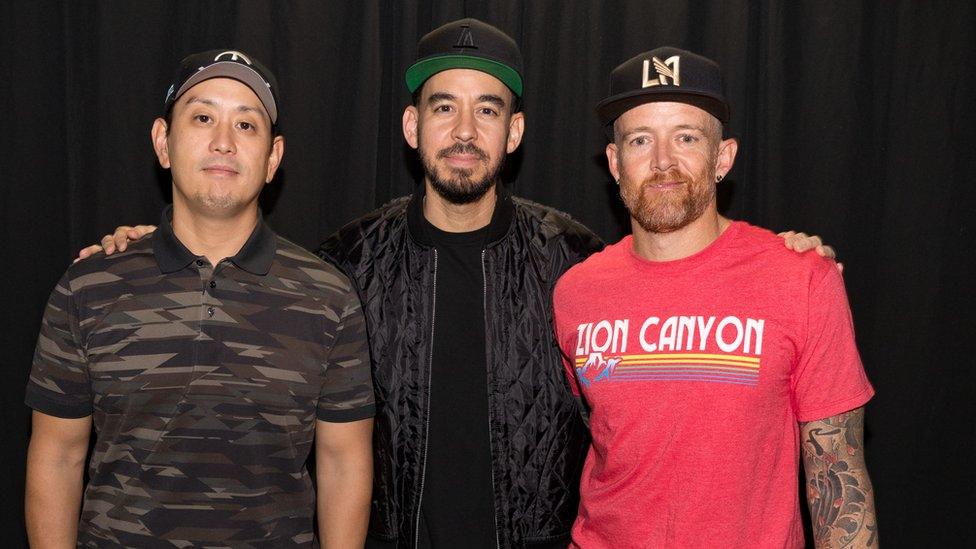Linkin Park take action after Donald Trump retweet
- Published

The video reportedly featured a cover of Linkin Park's song In The End
Linkin Park have issued a cease and desist notice after Donald Trump retweeted a video featuring one of their songs.
The video, posted by the US President's social media advisor, has been removed.
The band Tweeted: "Linkin Park did not and does not endorse Trump, nor authorize his organization to use any of our music."
Adele, REM and Pharrell Williams have previously taken issue with Mr Trump using their music.
Allow X content?
This article contains content provided by X. We ask for your permission before anything is loaded, as they may be using cookies and other technologies. You may want to read X’s cookie policy, external and privacy policy, external before accepting. To view this content choose ‘accept and continue’.

Allow X content?
This article contains content provided by X. We ask for your permission before anything is loaded, as they may be using cookies and other technologies. You may want to read X’s cookie policy, external and privacy policy, external before accepting. To view this content choose ‘accept and continue’.

The version of In The End in the video was a cover, performed by Tommee Profitt featuring Fleurie and Jung Youth, Variety reported, external.
Jung thanked "everyone in the Twitter community who helped get the video taken down".
The Lumen database of DMCA takedown notices shows Machine Shop Entertainment, Linkin Park's business arm and management company, formally requesting the removal of the video, external under the Digital Millennium Copyright Act in the US.

What is a cease and desist letter?
A cease and desist letter is sent from one organisation to another asking them to stop a specified activity.
It does not have any legal bearing but it might warn the recipient that if they don't stop what they're doing by deadlines set in the letter, then they could be sued.

Artists wanting to keep their distance from political campaigns is nothing new.
Four years ago, Adele released a statement saying Mr Trump did not have permission to use her music, after Rolling in the Deep was used as "warm-up music" at his rallies in the US.
And the Foo Fighters weren't keen on Republican John McCain using their tune My Hero during his 2008 presidential run.
The American Society of Composers, Authors and Publishers represents more than 11.5 million musical works from over 725,000 songwriters and composers and their music publishers.
It said: "The campaign will need to contact the song's publisher and possibly the artist's record label to negotiate the appropriate licenses with them."


Follow Newsbeat on Instagram, external, Facebook, external, Twitter, external and YouTube, external.
Listen to Newsbeat live at 12:45 and 17:45 weekdays - or listen back here.